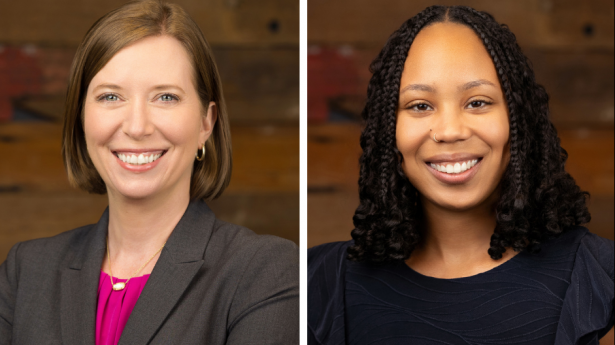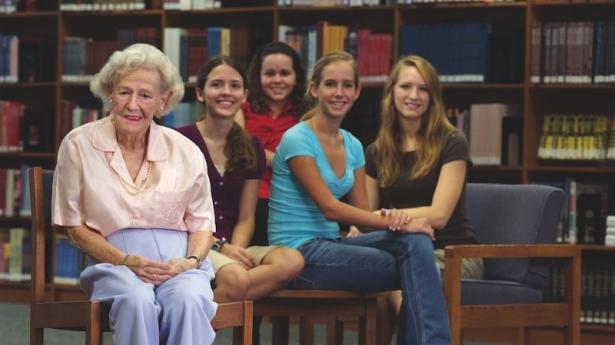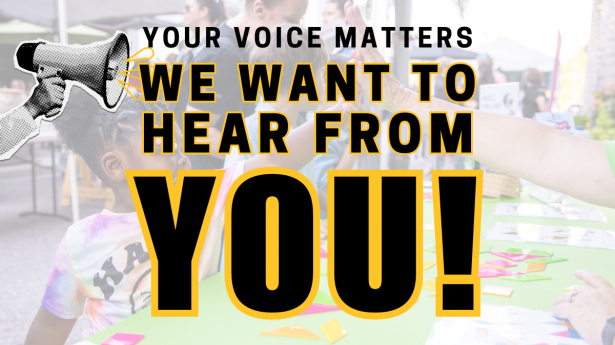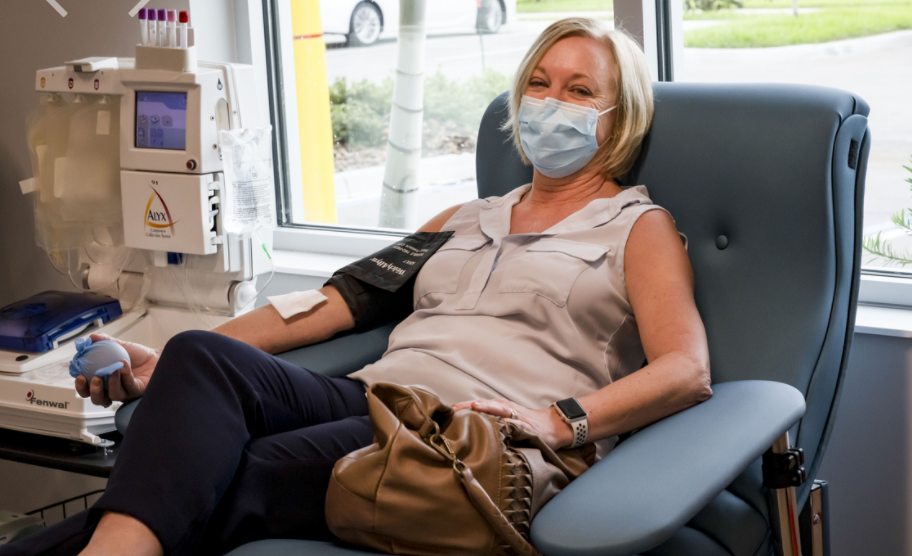
COVID-19 Response Grant Will Expand Convalescent Plasma Collection, and Save Lives
A new testing device—funded largely through our COVID-19 Response Initiative—will enable SunCoast Blood Centers to vastly expand collection of convalescent plasma and speed its delivery to hospitals treating patients with life-threatening COVID-19 infections.
The Gemini automated processing instrument will serve many uses beyond the pandemic too, such as supporting expanded collection of platelets for cancer treatments.

The new equipment was paid for with a $35,000 grant from our joint COVID-19 Response Initiative with the Charles & Margery Barancik Foundation and a $15,000 grant from William G. and Marie Selby Foundation.
Exploding demand
Demand for convalescent plasma—both locally and nationwide—is growing rapidly, according to SunCoast CEO Scott Bush. While there is still no cure for COVID-19, convalescent plasma from people who have recovered from infection has become one of the most prescribed treatments. “Our needs doubled in December,” said Bush. “Physicians are using it more, because it’s showing efficacy.”
But collecting enough plasma to meet that demand has proved challenging. Nearly all of SunCoast’s blood drives have been canceled because of the pandemic. (In a regular year, it would hold more than 1,300 blood drives.) On top of that, plasma used for transfusion in U.S. hospitals must meet safety requirements that drastically shrink the pool of potential donors. Specifically, plasma must be free of human leukocyte antigen (HLA) antibodies, which are commonly found in women who have been pregnant. While they pose no risk to these women, their presence in donated plasma can be dangerous to recipients.
“More than half of our donor base is female,” said Bush, “and most of them have been pregnant. There’s massive call for convalescent plasma in the United States and in this community. But it’s hard to meet that need, because 50% of the people who have recovered from COVID cannot donate.”
SunCoast currently tests its female donors for HLA. But the time and expense of sending samples to a lab hundreds of miles away and awaiting results further complicates scheduling qualified plasma donations. And even donors whose plasma is deemed safe to transfuse only retain the desired COVID-19 antibodies for a limited time.
That’s where the new Gemini testing device comes in. It will enable SunCoast to test for HLA in-house and get results the same day.
“This machine will really, really speed up that testing,” Bush said. “It will break down to hours or minutes what currently takes us weeks to do.” The result: more convalescent plasma on SunCoast’s shelves going to COVID-19 patients getting treated in area hospitals—and beyond.
SunCoast Blood Centers supplies plasma to about a dozen healthcare facilities across the four counties it serves, from Moffitt Cancer Center in Tampa to Englewood Community Hospital. It has also shipped plasma to other hospitals in Florida and to U.S. military installations. All of SunCoast’s convalescent plasma products are supplied free of charge to hospitals and patients.
A long-term investment
Bush says the Gemini testing device will prove vital long after the pandemic. Plasma is needed for other treatments, and the same issues with plasma from female donors will continue to apply.
The testing device also will expand SunCoast’s supply of platelets. Platelets, which aid in clotting, are critical in the treatment of cancer patients, trauma victims, surgical patients, and certain blood disorders. Thousands of patients in our community, ranging from newborn babies to seniors, require platelets every year.
“Platelet need is going to be huge,” said Bush. “There is a growing need for platelets to be HLA negative for various types of diseases.”
A cancer patient can use one to three units of platelets per day while undergoing chemotherapy or radiation treatment. More than 40% of SunCoast’s blood products currently go to Moffitt, and SunCoast soon will be supplying Sarasota Memorial Hospital’s Brian D. Jellison Cancer Institute.
How to help
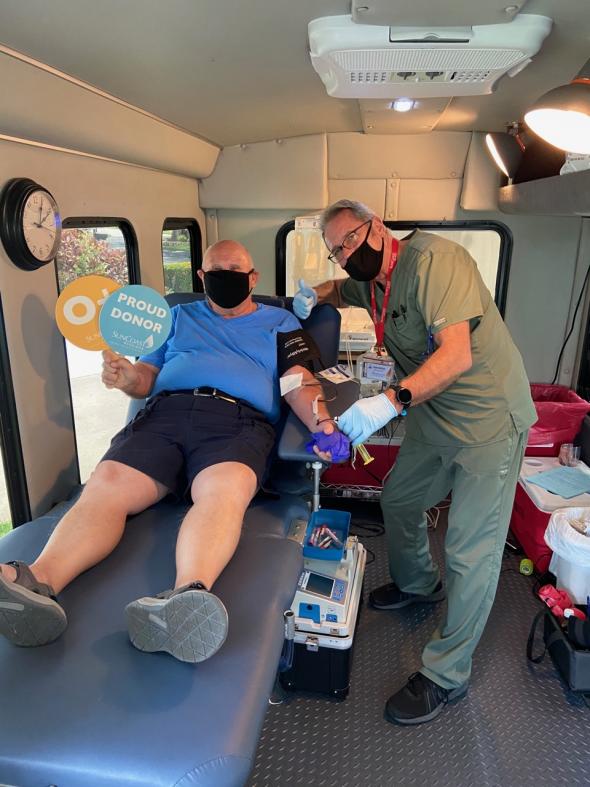
With the new testing device coming online soon, Bush and his team at SunCoast say what’s needed most right now is more blood donors. That’s where another SunCoast innovation comes in.
Last year—also aided by a COVID-19 Response Initiative grant—SunCoast launched a new concierge blood-donation service. It has retrofitted shuttle buses into safe, single-donor bloodmobiles that can come straight to a donor’s home or office.
“Donors really like this one-on-one interaction,” said Bush. “They feel safe, but we have to go to them. What we need is more smaller vehicles so we can have them donate from the safety and comfort of home.”
Bush sees the concierge service lasting beyond the pandemic too. It allows for more effective targeting when a particular blood product or type is urgently needed. With a traditional blood drive, “you are casting a net and hoping that the fish swims into it,” he said. “With this, we can target the right donor for the right time.”
Bush said SunCoast is the only blood center in the country that he knows of with a concierge service like this. “We need to expand it now,” he said. “More and more people are asking, and we just don’t have the equipment and vehicles yet to keep up.”
To learn more about supporting SunCoast Blood Centers, go here.
